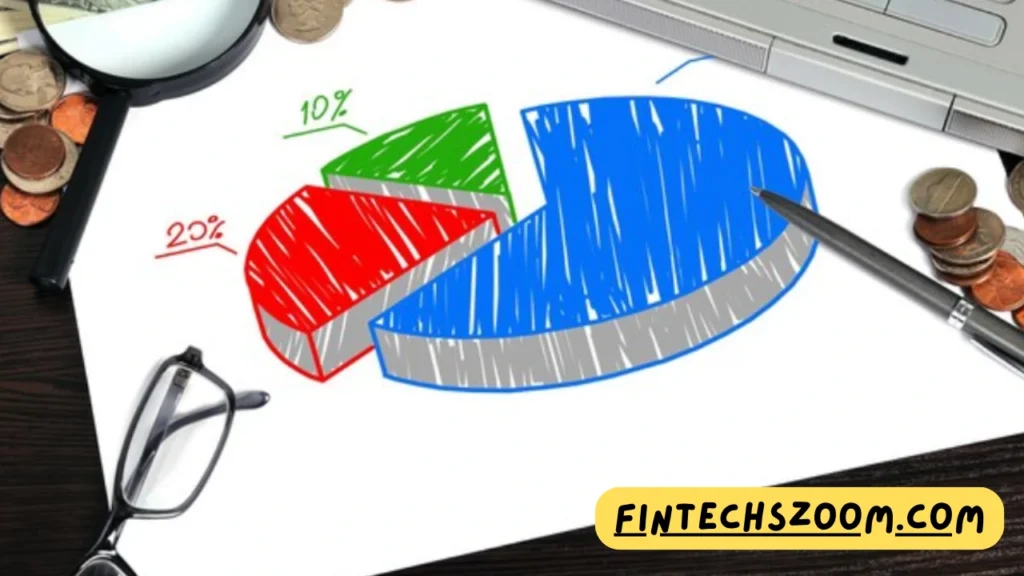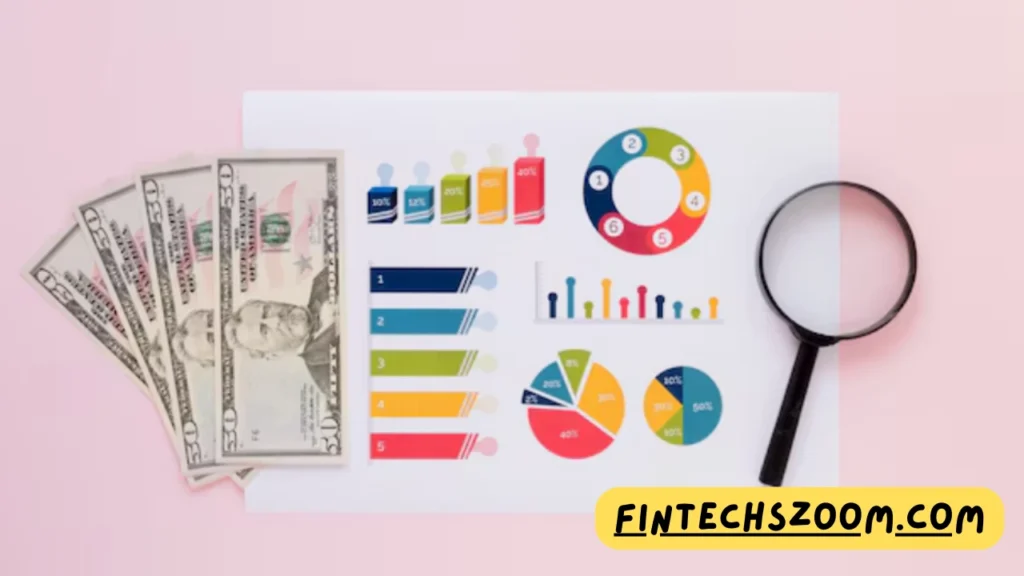Finding the best CD rates in Florida can be challenging, but FintechZoom.com makes it simple by providing up-to-date and reliable data. Certificates of Deposit (CDS) are famous for those searching for a low-risk investment with a secure return.
FintechZoom highlights the best CD rates from different banks and credit unions, helping you make the best decision for your savings goals. Whether you’re looking for short-term or long-term choices, this guide will help you compare the highest rates available in Florida, ensuring your money is created effectively and securely.
What Are CD Rates?
CD rates, or Certificate of Deposit rates, indicate the interest rates banks or credit unions provide for storing money in a CD account. A CD is a savings account where you agree to keep your money impounded for a clear period, ranging from a few months to several years.
In return, the bank pays a greater interest rate than standard savings accounts. The fixed rate doesn’t change during the CD’s term, allowing you to earn guaranteed interest over time.
What Types of CDS Are Available in Florida?

In Florida, several types of CDS are available to suit different financial goals:
- Traditional CD: Fixed interest rate for a particular term, usually several months to years.
- Jumbo CD: Requires a high minimum deposit, offering higher interest rates for bigger investments.
- No-Penalty CD: Permits early withdrawal without penalties, giving adaptability for unexpected financial needs.
- Bump-Up CD: Empowers a one-time rate increase if interest rates rise during the CD term.
- IRA CD: Designed for retirement savings, offering potential tax advantages while earning guaranteed interest.
How do you choose the right CD term for you?
To choose the right CD term, consider the following factors:
- Financial Goals: Adjust the CD term and your short-term or long-term savings goals.
- Liquidity Needs: If you need access to your money soon, select
- a shorter CD term.
- Interest Rates: Longer terms offer higher rates, but lock your funds for amplified periods.
- Future Rate Expectations: Consider shorter terms or bump-up CDS if you expect rates to rise.
- Penalty Fees: Understand the early withdrawal penalties to avoid unnecessary costs if accessing funds early.
CD vs. Savings Account: What’s Better?
Here’s a table comparing CDS (Certificates of Deposit) vs. Savings Accounts:
| Feature | CD (Certificate of Deposit) | Savings Account |
|---|---|---|
| Interest Rate | Long-term savings goals, locking in higher rates | Lower, typically variable, and changes with market conditions |
| Access to Funds | Limited access until maturity (penalty for early withdrawal) | Easy access, can withdraw anytime |
| Minimum Deposit | Usually requires a higher minimum deposit | Lower minimum deposit requirements, sometimes none |
| Risk Level | Low risk (FDIC or NCUA insured) | Low risk (FDIC or NCUA insured) |
| Term Length | Fixed term (e.g., 6 months, 1 year, 5 years) | No fixed term; funds can be held for as long as desired |
| Liquidity | Less liquid due to early withdrawal penalties | Highly liquid, no penalties for withdrawals |
| Best for | Fixed rate throughout the term | Short-term savings or emergency funds with immediate access |
| Interest Payment | Very flexible, can deposit or withdraw at any time | Variable rate, depending on the bank and market rates |
| Penalty for Early Withdrawal | Yes, usually, a penalty for withdrawing funds before the CD matures | There is no penalty for withdrawals (although excessive withdrawals may be limited) |
| Flexibility | Less flexible, must commit to a term | Very flexible, can deposit or withdraw any time |
Features of CD Rates In Florida
The features of CD rates in Florida include:
- Fixed Interest Rates: Rates stay constant throughout the entire CD term.
- Varied Terms: Terms range from a few months to several years.
- Higher Rates for Longer Terms: Longer terms offer better interest rates overall.
- Early Withdrawal Penalties: Prices apply for withdrawing funds before the development date.
- FDIC or NCUA Insurance: Deposits are insured up to $250,000 for safety.
- Least Deposit Requirements: Most CDS require a minimum deposit amount.
Top Banks Offer CD Rates
Here are some top banks offering competitive CD rates in Florida:
- Ally Bank: Known for high CD rates, no minimum deposit requirement, and simple online account management.
- Marcus by Goldman Sachs: Offers attractive rates with no minimum balance and terms of up to six years.
- Discover Bank: Features competitive CD rates with no opening fees and adaptable terms to meet different savings needs.
- Synchrony Bank: Gives strong long-term CD rates, particularly for bigger deposits, and helpful online banking.
- American Express Bank: Offers no expenses, strong CD rates, and adaptable terms, making it reasonable for savers seeking stability.
How to Compare CD Rates Across Florida Banks?
| Factor | What to Look For | Why It’s Important |
|---|---|---|
| Interest Rate (APY) | Highest APY for similar term lengths | Higher APY = More interest earned |
| Term Length | Range of options (6 months, 1 year, etc.) | Shorter terms = flexibility, longer terms = higher rates |
| Early Withdrawal Penalty | Penalty fees for early access to funds | High penalties reduce earnings |
| Minimum Deposit | The minimum amount required to open a CD | Lower deposit = easier entry, higher = better rates |
| Online vs. Local Banks | Compare rates between online and local banks | Online banks often offer better rates |
| Account Fees | Check for any account maintenance or hidden fees | Fees lower your overall return |
| Special Offers | Promotional rates or no-penalty CDs | Special offers can provide better terms or rates |
| FDIC/NCUA Insurance | Ensure deposits are FDIC or NCUA-insured | Protection up to $250,000 |
| Customer Service | Check reviews for support and service quality | Good service ensures a better experience |
| Comparison Tools | Use FintechZoom.com to compare CD rates | Saves time by comparing multiple banks at once |
The Benefits of Fixed CD Rates in Florida
Here are the benefits of fixed CD rates in Florida:
Ensured Returns
Fixed CD rates give consistent returns throughout the term, permitting you to predict your earnings with certainty. This makes CDS a steady and low-risk investment option for your savings.
Protection from Rate Changes
With fixed CD rates, your interest remains locked, securing you from market changes. This is particularly useful when rates decay, ensuring your returns remain unaffected by external financial factors.
Low Risk
Fixed CDS are a secure investment, as the FDIC or NCUA regularly insures them. Your vital interests are secured, making this a strong option for conservative savers.
Changed Term Options
Fixed-rate CDS in Florida have different term lengths, allowing you to select one that matches your financial goals, whether you prefer short-term development or longer-term security.
Higher Rates than Savings Accounts
Fixed CD rates usually offer higher interest rates than traditional savings accounts, helping you maximise your earnings over time without requiring constant observation or adjustments.
What Affects CD Rates in Florida?

Here are the key factors that affect CD rates in Florida:
- Financial Conditions: Expansion, retreat, and generally market health impact interest rates set by banks.
- Term Length: Longer CD terms generally offer higher rates, while shorter terms have lower interest rates.
- Bank Competition: Banks in competitive markets may offer higher CD rates to attract more customers.
- Deposit Amount: Larger deposits, like jumbo CDS, earn higher rates than smaller deposits.
- Promotional Offers: Special bank promotions may temporarily raise CD rates to attract new customers or deposits.
Understanding Fixed and Variable CD Rates
Understanding the difference between fixed and variable CD rates is important for choosing the right investment option:
Settled CD Rates
The interest rate remains constant throughout the CD term. This provides regularity, ensuring you know exactly how much you’ll earn. Fixed-rate CDS are perfect for those looking for stable, low-risk returns, as the rate won’t change as the market changes.
Variable CD Rates
The interest rate can change during the CD’s term, often based on an external benchmark or market performance. Whereas this can lead to higher returns if rates rise, there’s also a risk of earning less if rates fall. Variable CDS suit investors willing to accept more risk for potential gains.
Both options offer unique benefits depending on your financial goals and risk tolerance.
Best CD Rates in Florida: Expert Recommendations
Here are some expert suggestions for finding the best CD rates in Florida:
- Research Multiple Banks: Compare rates from different banks and credit unions to discover competitive options.
- Look for Promotional Rates: Some institutions offer special promotional rates for new customers.
- Consider Online Banks: Banks often give higher rates due to lower overhead costs.
- Evaluate Terms and Penalties: Assess different terms and early withdrawal penalties before choosing.
- Check Reviews and Ratings: Read customer reviews to gauge service quality and reliability.
- Understand Rate Changes: Monitor market trends to select the right time for investment.
Tips to Get the Best CD Rates in Florida
Here are tips to help you get the leading CD rates in Florida:
- Shop Around: Compare rates from multiple banks and credit unions to discover the most competitive offers.
- Consider Online Banks: Banks often give higher CD rates due to lower overhead costs.
- Look for Promotional Rates: Watch for promotions that are regularly higher and are available to new customers.
- Select Longer Terms: Longer CD terms usually offer higher interest rates, maximising your returns.
- Select Jumbo CDS: Bigger deposits in Jumbo CDS regularly earn higher interest rates.
- Monitor Financial Trends: Invest when interest rates rise to lock in superior long-term rates.
Best Short-Term vs Long-Term CD Rates
Here is a comparison of short-term vs. long-term CD rates for 2025:
| Term Length | Best CD Rates (APY) | Minimum Deposit | Early Withdrawal Penalty |
|---|---|---|---|
| 3 Months | 4.79% | $500 – $25,000 | 1–3 months of interest |
| 6 Months | 5.25% | $500 – $5,000 | 3 months of interest |
| 12 Months | 5.02% | $500 – $5,000 | 6 months of interest |
| 24 Months | 4.52% | $500 | 6 months of interest |
| 36 Months | 4.65% | $500 | 6 months of interest |
| 60 Months | 4.50% | $500 | 12 months of interest |
Analysis:
- Short-term CDS (e.g., 3, 6, or 12 months) tend to offer higher APYS, with rates up to 5.20% for 2025, due to economic conditions favouring short-term investments.
- Long-term CDS (24, 36, or 60 months) often provide stability with fixed rates over a longer period, though they currently offer lower APYS (around 4.55% to 4.75%). These may still be useful for individuals seeking security and longer-term savings growth.
How do you open a CD account in Florida?
Here’s how to open a CD account in Florida:
- Research and Compare: Compare CD rates and expressions from different banks.
- Select a Bank or Credit Union: Select a respected bank or credit union for savings.
- Select a CD Term: Select one that fits your financial goals.
- Meet the Deposit Requirement: Ensure you have the least deposit to open the account.
- Give Identification: Submit required identification for account verification and compliance.
- Fund the Account: Transfer funds to open your CD account officially.
How to Track Your CD Investments Easily?
Here are ways to track your CD investments:
- Online Banking: Monitor CD balances and interest through your bank’s website.
- Mobile Banking Apps: Access your CD information anytime using your bank’s app.
- Set Reminders: Create reminders for development dates and interest payment dates.
- Annual Statements: Review annual statements for earnings and term changes regularly.
- Utilize a Spreadsheet: Systematically record CD details, including rates and development dates.
- Contact Customer Service: Reach out to your bank for updates on investments.
- Financial Management Apps: Use apps to track all investments, including CDs, productively.
How to Secure the Highest CD Rates in Florida?

Compare rates from different banks and credit unions to secure the highest CD rates in Florida. Online banks often offer better rates due to lower overhead costs. Look for promotional offers for new accounts or bigger deposits.
Choosing longer CD terms generally results in higher interest rates, and investing larger amounts in jumbo CDs can yield better returns. Additionally, monitor financial trends to stay informed about interest rate changes and consider joining credit unions, which often give competitive rates for individuals.
Best Time to Invest in a CD in Florida
The best time to invest in a Certificate of Deposit (CD) in Florida depends on several factors. If interest rates are expected to rise, consider waiting to secure a better, better, much better, a higher, a stronger, an improved”>a higher rate. Also, monitor market conditions, as high expansion often leads banks to increase CD rates.
Look for promotional offers from banks that give higher rates than standard options. Assess your financial goals and liquidity needs to determine if locking in funds for a longer term suits you. Research seasonal trends, as some banks may offer elevated rates at particular times.
The Future of CD Rates in Florida
The future of CD rates in Florida is expected to improve as the Federal Reserve adjusts interest rates in response to expansion and financial conditions. This may result in higher returns for savers, particularly as competition among banks and credit unions drives rates upward.
Also, shifts in customer demand may lead to more innovative CD items with adaptable terms and promotional offers. Overall, the outlook for CD rates proposes a positive trend, empowering savers to remain informed about market changes to capitalize on better rates.
Conclusion
FintechZoom simplifies finding the best CD rates in Florida by offering updated data to guide investors toward low-risk options with ensured returns. Different types of CDs, such as traditional, jumbo, and no-penalty CDs, cater to other financial goals.
Key factors include term lengths, interest rates, and potential early withdrawal penalties. Investors can secure the highest returns by comparing different banks, including online options, and considering promotional rates. Observing financial trends and choosing longer-term CDs can further maximize earnings effectively.
FAQs
What are FintechZoom.com’s Best CD Rates in Florida?
It’s a source that gives updated information on the highest CD rates from different banks and credit unions in Florida.
What Are CD Rates?
CD rates are fixed interest rates offered for searching funds in a bank for a set term.
Can You Withdraw Money Early from a CD?
Yes, but there may be penalties for early withdrawal.
How Often Do CD Rates Change?
CD rates are regularly fixed for the expressions, but banks may change them for new accounts.
Can You Add More Money to a CD?
No, you cannot add more funds once a CD is opened until development.
How Long Should You Keep Money in a CD?
It depends on your financial goals, but CDs range from a few months to several years.
Are There Any Fees for CDs in Florida?
Generally, there are no fees, but early withdrawal may experience penalties.
What Is the Best Time to Invest in a CD?
When interest rates are high or during advancement offers.
How Can You Track CD Investments?
You can track CDs through online banking, apps, or financial management tools.
What Are the Benefits of Fixed CD Rates?
They offer ensured returns, protection from rate changes, and low risk.

